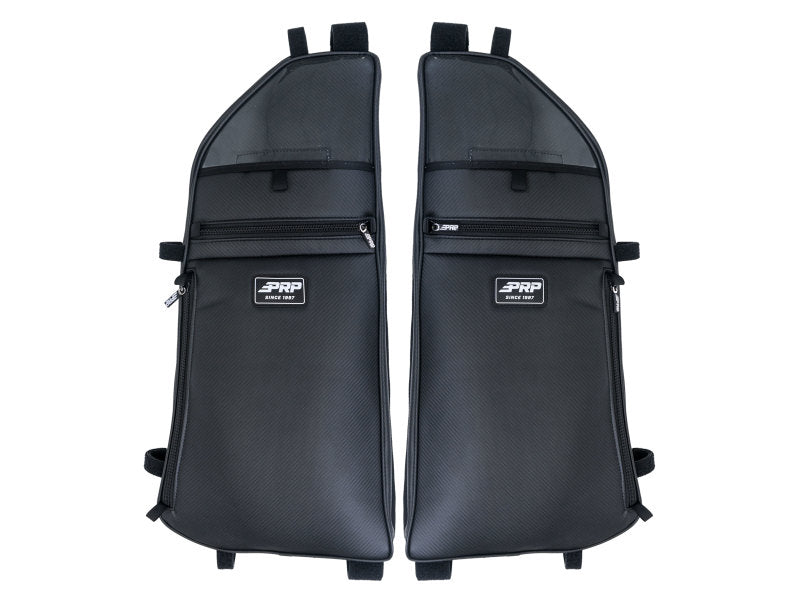When you visit an exhaust shop for the first time, skilled workers will take a good look at all the parts that help your car's engine breathe out - the pipes, muffler, catalytic converter, and sensors. They use special tools to spot any problems like holes, rust damage, or broken parts. This checkup usually takes about half an hour. After looking everything over, they'll tell you exactly what needs fixing or if you'd like to make your exhaust system better. You can choose between quick fixes or getting a whole new system put in, which might take 2-4 hours. To get the most from your service, make sure you learn about the different metals they use, what the warranty covers, and how to keep your exhaust system running well.
Key Takeaways
- Mechanics will perform a comprehensive inspection of your exhaust system, checking for holes, rust, and component functionality.
- Expect to discuss your driving style, performance goals, and budget to receive tailored recommendations for repairs or upgrades.
- Initial assessment typically takes 30 minutes, while complete repairs or installations may require 2-4 hours.
- Bring photos and measurements of your current exhaust system to help mechanics provide accurate service quotes.
- Professional shops will explain warranty coverage, maintenance requirements, and provide detailed documentation of all work performed.
Preparing for Your Shop Visit
Before visiting an exhaust shop, make sure you know key details about your car.
Think about what kind of pipes you want - one pipe or two - and learn about the basic materials like stainless steel or cheaper aluminized steel. This knowledge will help you talk clearly with the mechanics. Having a strategic plan ready will help avoid costly delays and mistakes during the installation process.
Take some time to measure your current exhaust system and write down where it connects to your car's frame and where the mufflers sit.
Also, grab your phone and take pictures of how everything looks now, especially any parts that need fixing.
When you bring these details to the shop, the mechanics can better understand what you need and tell you how long the job will take and what it will cost.
Consider whether you want to focus on performance enhancement or just need basic repairs to your existing system.
Professional Assessment and Inspection
When you bring your car to the exhaust shop, skilled mechanics will give your exhaust system a complete check-up using special tools. They look at every part carefully to spot any problems that could affect how well your car runs and how safe it is.
The mechanics will:
- Look for holes, breaks, and rust using testing tools
- Check if the catalytic converter works well and test the oxygen sensors
- Make sure all the brackets and supports are strong and holding everything in place
- Check the muffler and all pipes for damage
Having a battery system inspection done during your exhaust check can help identify any electrical issues affecting sensor performance.
After checking everything, the mechanics will tell you what they found and what needs to be fixed. Professional mechanics can also recommend specific exhaust systems based on your driving style and preferences. They'll give you a clear plan that shows repair costs and how long the work will take.
Understanding Available Service Options
When mechanics check your car's exhaust system, they can fix problems in several ways. The fixes can be as simple as patching a hole or as big as putting in a whole new system.
Common problems like a broken muffler or leaking pipes can be fixed quickly with basic repairs or new parts. At Quick Muffler Shop, most repairs are completed in under 30 minutes. Bigger jobs might need custom-made parts, a new catalytic converter, or changes to make your car run better.
Many shops also clean exhaust systems and do regular checks to help parts last longer. Advanced air intake systems can significantly increase your engine's performance while working alongside your exhaust. You can also get upgrades to boost your car's power, custom work, and special fixes for different kinds of vehicles - from old classics to off-road trucks.
Most shops back up their work with warranties and help keep your exhaust system running well over time.
Quality Materials Matter
The right materials make a big difference in how your car's exhaust system works and lasts. Better metals like T304 and T409 stainless steel hold up much longer and fight rust better than basic steel parts you might find in stock exhausts.
Good materials show clear benefits:
- Strong stainless steel fights off rust, which really helps in bad weather.
- Wider pipes let exhaust flow better, helping your engine run stronger.
- Rust-resistant parts are better for the environment since they don't need replacing as often.
- Better metal quality means less shake and rattle, plus stronger overall construction.
Top brands like MagnaFlow and Flowmaster use these better materials to build their parts. Mandrel bending techniques ensure consistent pipe diameter for optimal flow throughout the system.
Engine performance parts can help create your ultimate custom exhaust system.
This means your car not only runs better but also helps the environment by lasting longer and putting out fewer harmful gases.
Custom Vs Standard Solutions
Custom and standard exhaust systems give car owners two clear paths for upgrades. Custom systems work better because they let exhaust flow more freely, help save gas, and let you pick the sound you want. Standard systems fall short due to their one-size-fits-all design and weaker metals.
|
Feature |
Custom Solutions |
Standard Solutions |
|
Materials |
High-grade steel |
Mild steel |
|
Performance |
Optimized flow |
Basic flow |
|
Longevity |
Extended lifespan |
Limited durability |
|
Cost Analysis |
Higher upfront, lower long-term |
Lower upfront, higher long-term |
Custom systems cost more at first ($150-$2,000) but save money over time because they last longer, work better, and need fewer fixes. Standard systems are easy to find but need to be replaced often and don't help your car run much better.
Warranty and Guarantee Details
Exhaust system warranties need close review since they differ among makers and sellers. Most factory warranties last three years or 36,000 miles, while parts that control emissions might get longer coverage based on local rules.
Main warranty points to know:
- Basic factory coverage protects exhaust parts, pipes, and catalytic converters anywhere from 90 days to 8 years.
- Extra warranty plans might not pay for some parts or the work to install them.
- Your warranty stays good only if parts are put in right and you follow service steps.
- Using the vehicle for business, changing parts, or having repairs done by non-approved shops breaks the warranty.
To keep your warranty working, you need to save all service papers, use parts the maker approves, and keep your purchase receipts when filing claims. Knowing these rules helps you get the most from your coverage and avoid problems with claims.
Cost Breakdown and Estimates
Fixing an exhaust system can cost different amounts depending on your car type and what parts you need.
A full exhaust system replacement usually costs between $1,132 and $1,161, with workers charging $80 to $101 to do the job.
Getting just the muffler fixed is cheaper, with parts costing $50 to $250, and workers charging $70 to $90.
The price changes a lot based on what car you have - fixing a Honda Accord's exhaust costs $1,653 to $1,763, while a Toyota Camry costs $717 to $747.
Simple parts like pipes and clamps start at $20, but replacing everything can cost up to $1,500, especially if you want special parts.
Installation Process and Timeline
The exhaust system can be put in place once you pick the right parts and know the cost. Skilled mechanics work step by step, first getting their tools ready and prepping the car. A good understanding of how exhaust works helps them put everything in the right spot for best performance.
- Lift the car with jacks and safety stands, then take off the old exhaust.
- Check measurements and line up new parts, getting the muffler and pipes in the right spots.
- Put in oxygen sensors and seals, and tighten all parts to the right level.
- Check everything works well and there are no leaks.
The whole job usually takes 2-4 hours, but might be longer if there are any problems. Mechanics follow the maker's rules closely throughout the whole job.
Maintenance Requirements After Service
Regular care after exhaust repairs helps keep the system working well for years to come. You need to check it twice a year and look out for rust, cracks, or parts that have come loose. Learn more about what signs indicate you need a new exhaust system.
Keep the exhaust clean and free of dirt, oil any moving parts, and look it over often for problems. Watch for odd sounds, too much shaking, or if your car starts using more gas than usual. Check out these tips for maintaining your exhaust system to ensure optimal performance and longevity.
Fix small issues quickly before they turn into big, expensive ones. Write down when you do repairs and stick to the maker's schedule for service. Get trained mechanics to work on it - they'll make sure it meets clean air rules and runs at its best.
Performance Benefits and Results
A good exhaust system makes your car perform better in many ways. Getting your exhaust properly tuned helps your engine run better, gives you more power, and uses less fuel. These upgrades make a real difference in everyday driving.
Main improvements you'll notice:
- More engine power because exhaust gases flow better and face less resistance, giving you extra horsepower and stronger acceleration
- Better fuel economy since your engine doesn't have to work as hard and burns fuel more effectively
- Better sound with deeper, richer exhaust tones
- System lasts longer thanks to strong materials and expert installation
These upgrades show why quality exhaust changes are worth the money, especially for drivers who want their cars to perform better.
Frequently Asked Questions
Can I Bring My Own Aftermarket Parts for Installation?
We can install parts you bring in, but we'll need to check if they fit your car properly and meet safety standards. Many shops have rules about using outside parts, since they want to make sure repairs are done right and won't cause problems later. Keep in mind that some parts might not be covered by warranties if you supply them yourself.
Do Weather Conditions Affect How Long My Exhaust System Will Last?
Bad weather can really harm your car's exhaust system. Hot and cold swings, rain, and winter road salt all take their toll. To help your exhaust last longer, get it checked often and add protective layers to fight off these harsh effects.
Will a Custom Exhaust System Affect My Vehicle's Resale Value?
A custom exhaust can help or hurt your car's resale value. Well-done upgrades that boost power and create a nice sound often keep or add value. But cheap or illegal changes can make your car harder to sell and worth less money.
How Long Should I Wait Before Driving After Exhaust System Installation?
Let your new exhaust system cool down fully after putting it in. Look over all parts where things connect, listen for any odd sounds, and make sure it's working better than before. Most people wait about 15-30 minutes before hitting the road.
Does Modifying My Exhaust System Impact My Vehicle's Insurance Coverage?
Changes to your exhaust system can make your insurance cost more money. You need to tell your insurance company about any new parts you add to your car's exhaust, or they might refuse to pay if you have an accident or even cancel your insurance.
Conclusion
A professional exhaust system service at Gexhaust delivers peak vehicle performance through expert diagnosis, quality components, and precise installation. The combination of thorough inspection, appropriate material selection, and skilled workmanship guarantees long-term reliability and enhanced engine efficiency. Whether opting for custom or standard solutions, proper maintenance following service maximizes system longevity and sustains the performance improvements achieved through professional exhaust work. Contact us to learn more about our services.





